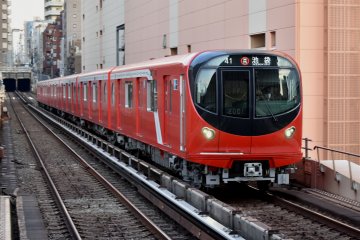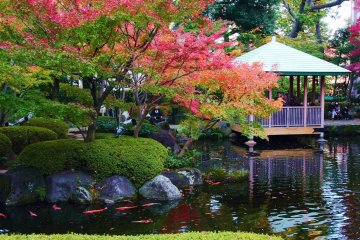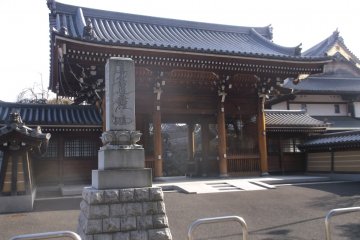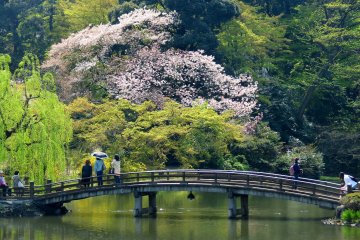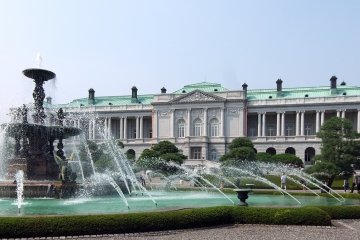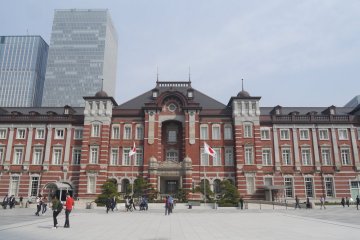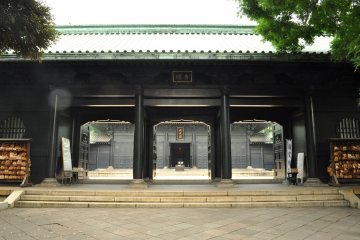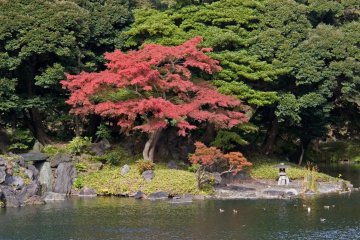Overview
Tokyo's second subway line and the first to be constructed after World War II, the Tokyo Metro Marunouchi Line is one of the city's busiest with twenty-eight stations, including three stations along a small branch line. Beginning in Ogikubo in central Tokyo's west, the red line cuts through to Shinjuku before looping back and ending in Ikebukuro. Here is a simple guide to the line's stations and places to visit along the way.
Ogikubo, Minami-asagaya, Shin-koenji, Higashi-koenji
A short walk from Ogikubo station lies the beautiful strolling garden of Otaguro Park while Kadokawa Garden can be found near Miniami-asagaya station. Head out of Shin-koenji station and take a tour of local temples like Saisho-ji, Saiho-ji, and Shugyo-ji. Continuing the theme of public spaces is Sanshi no Mori Park, not far from Higashi-koenji station.

Shin-nakano, Nakano-sakanue, Branch line stations
Tengoshoku Benzaiten shrine, with its Mt. Fuji-like stone mound is right by Shin-nakano station. Nakano-sakanue station gives access to the spacious Hosenji Temple and its garden. The branch station of Nakano-shimbashi is close to Fujigami Inari shrine and its elegant fox-god statue, Nakano-fujimicho station is a short stroll to the twin temples of Teonji & Ryuhoji while Honancho station opens out onto Honan Ginza Shotengai, a retro-shopping street.

Nishi-shinjuku, Shinjuku, Shinjuku-sanchome, Shinjuku-gyoemmae
Nishi-shinjuku station is close to the iconic LOVE Sculpture while Shinjuku station, the world's busiest station and home to everything, includes the famous Omoide Yokocho street stall alleyway. Shinjuku-sanchome is right by Shinjuku Marui Annex, a great shopping and dining location. Shinjuku-gyoemmae station is next to the incredible must-see that is the Shinjuku Gyoen National Garden.

Yotsuya-sanchome, Yotsuya, Akasaka-mitsuke
The Shinjuku Historical Museum is a short walk from Yotsuya-sanchome station while Yotsuya station itself takes you to the incredible Akasaka Imperial Property. A few minutes away from Akasaka-mitsuke station are the stunning free gardens of Hotel New Otani.

Kokkai-gijidomae, Kasumigaseki, Ginza, Tokyo
The impressive government National Diet Building is accessible via Kokkai-gijidomae station. Kasumigaseki station takes you to the beautifully kept Kensei Memorial Park while Ginza station is heaven for high-end shopping at Mitsukoshi Department Store. Servicing the nation's capital is Tokyo station, whose superb architecture and shopping turns the station into a destination in and of itself.

Otemachi, Awajicho, Ochanomizu, Hongo-sanchome
Along with the Imperial Palace, Otemachi station is home to the eerie grave of samurai Taira no Masakado. Awajicho station is a few minutes from Awaji Park, a public space right by Waterras shopping mall. Ochanomizu station is close to Yushima Seido, a 17th century Confucian temple while Hongo-sanchome station takes you to the Japan Football Museum.

Korakuen, Myogadani, Shin-otsuka, Ikebukuro
Korakuen station is perfect access to the amazing Tokyo Dome City and Koishikawa Korakuen Garden. Myogadani station takes you to the old wooden Taisho-era Isono House while Shin-otsuka station is home to the Shintaro Suzuki Memorial Museum. Finally, Ikebukuro station, one of Tokyo's major commercial districts, features Ikebukuro Nishi-guchi park, a public space full of open-air festivals and entertainment.








